Senior Staff
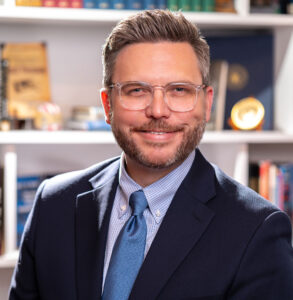
Brent Leatherwood
President
Brent Leatherwood was elected as president of the Ethics and Religious Liberty Commission in 2022, after a year of leading the organization as acting president. Previously, he served as chief of staff at the ERLC, as well as the entity’s director of strategic partnerships. He brings an expertise in public policy to his work, having been the executive director of the Tennessee Republican Party, the director of communications and policy strategy in the Tennessee General Assembly, and working for several years on Capitol Hill in Washington, DC. Brent is a dedicated member of his church, where he has served as a deacon since 2014. Brent is married to Meredith, and together they have three children.
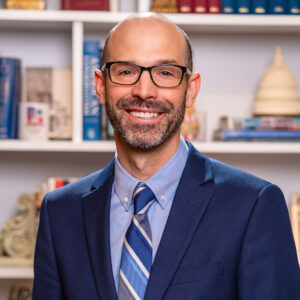
Miles Mullin
Vice President and Chief of Staff
Miles S. Mullin II, Ph.D., serves as vice president and chief of staff for the ERLC, having previously served at the Missouri Baptist Convention, Hannibal-LaGrange University, and Southwestern Seminary, as well as a trustee for the ERLC. Miles was educated at the University of Virginia (B.A.), Southeastern Seminary (M.Div.) and Vanderbilt University (M.A., Ph.D.) where he studied American Religious History. He is an active member of the Evangelical Theological Society. Miles and his wife Jenny met in Cru. They have lived in five states and raised two adult sons.
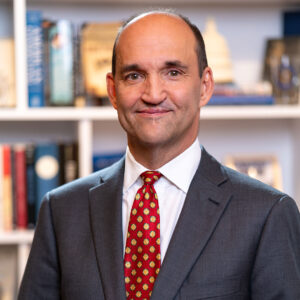
Bobby Reed
Chief Financial Officer
Bobby Reed serves as chief financial officer. His primary responsibilities are financial oversight, human resources, and administrative business functions. Bobby, a graduate of Louisiana State University, came to the ERLC after serving on the staff of churches in Louisiana and Florida. He and his wife, Louise, have four grown children and two granddaughters.

Hannah Daniel
Director of Public Policy
Hannah Daniel serves as the ERLC’s director of public policy, representing the policy interests of Southern Baptists to government through advocacy and education. Originally from Tennessee, she graduated from Union University with a Bachelor of Science in business administration with a concentration in economics. She currently lives in Washington, D.C., where she is a member and small group leader at her local church.
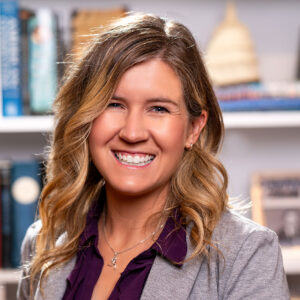
Julie Masson
Director of Communications
Julie Masson is the director of communications at the ERLC. She brings her fifteen years of marketing and communications experience from working for SBC entities and other non-profits to serve Southern Baptist churches. She directs the strategy and implementation of the organization’s comprehensive communications initiatives. Julie holds a Master’s degree in Journalism and Mass Communications from the University of Kansas. Julie and her husband served as church planters in Spain with the International Mission Board before settling in Kansas City with their three children.
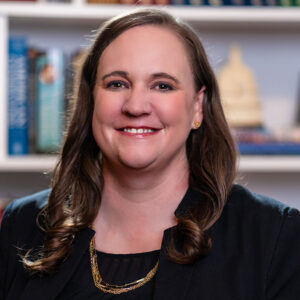
Rachel Wiles
Deputy Chief of Staff
Rachel Wiles serves as deputy chief of staff and director of the Psalm 139 Project for the ERLC. In her role, she coordinates the activity in the president’s office under the overall strategy of the organization. She also oversees the work of placing ultrasound machines and providing training to pregnancy centers across the world. She earned her Bachelor’s degree in Family Studies from Union University in 2005. Rachel and her husband, Brad, have been married since 2006 and have a son and a daughter.
Staff
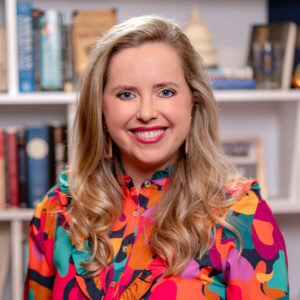
Elizabeth Bristow
Press Secretary
Elizabeth Bristow serves as the press secretary for the ERLC. Elizabeth oversees public relations and media operations for the organization. She received a B.A. in Public Relations and Marketing from Union University in 2010. She is a native of Tennessee and resides in Lebanon, Tennessee, with her husband and two children.

Allison Cantrell
Policy Associate
Allison Cantrell serves as a policy associate in the ERLC’s Washington, D.C. office, where she assists with representing Southern Baptist policy initiatives. Previously, Allison resided in Florida, where she worked at the Governor’s Office and graduated with her Master’s in Demography at the Florida State University.

Kadin Christian
Assistant to the Office of the President
Kadin serves as assistant to the office of the president. An Alabama native, Kadin previously served as an intern with the ERLC, and then continued working under the leadership of the Chair of Research in Technology Ethics while he was a college ministry resident at First Baptist Church of Opelika. He graduated with a degree in Finance from Auburn University and is currently pursuing his Master of Divinity from The Southern Baptist Theological Seminary.
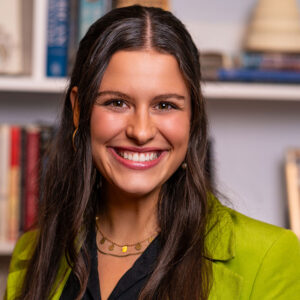
Lizzy Davis
Communications Assistant
Lizzy Davis serves as the communications assistant, helping to manage the ERLC’s online presence and assisting with projects and initiatives. Lizzy previously served as an intern for the ERLC before joining the team. She is completing her undergraduate degree at William Carey University.
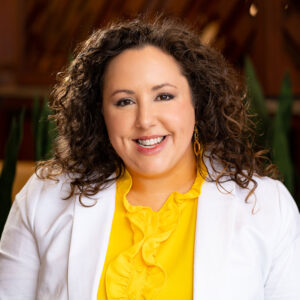
Amanda Hays
Digital Marketing Manager
Amanda Hays serves as the digital strategist for the ERLC. Her responsibilities include digital marketing strategy & analytics. Amanda is a graduate of the University of Alabama at Birmingham.

Stacey Keck
Accountant
Stacey Keck has served in the business and finance office since 2008. She assists the chief financial officer with accounting and human resource functions. Stacey is a graduate of Rhodes college. She and her husband, Bryan have two adult boys.

Grace Liu
Communications Assistant
Grace Liu serves as communications assistant for the ERLC, with a special focus on editorial content and initiatives. Outside of the ERLC, Grace serves as Donor Relations and Communications Coordinator at The Field School in Chicago, Illinois. She received a B.S. in Community Leadership & Development and Violin Performance from Vanderbilt University. Originally from Virginia, Grace currently resides in Chicago and is an active member of Chicago West Bible Church.
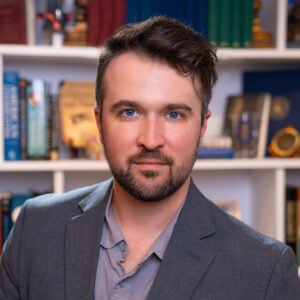
Kevin Miller
Videography and Video Editor
Kevin Miller serves as videographer and video editor for the ERLC. He has a BS in Electronic Media Communication Production from Middle Tennessee State University. In addition to serving with the ERLC, he works full time for WTVF in Nashville and manages his sole proprietorship Elemental Video Co. He has been honored with 12 Emmy nominations as well as five Emmys in the mid-south region.

Lindsay Nicolet
Editorial Director
Lindsay Nicolet serves as the editorial director for the ERLC. She oversees the day-to-day management of all content and resources from the Nashville office. Lindsay completed her Master of Divinity at The Southern Baptist Theological Seminary. She is married to Justin and they have a daughter and a son.

Jill Waggoner
Communications and Public Relations Strategist
Jill Waggoner serves as a communications and PR strategist, writing and developing content for the organization’s online and print resources. She has served the ERLC since 2005, including as brand manager for Global Hunger Relief from 2014-2018. A graduate of Union University, she and her family reside in Lebanon, Tennessee.
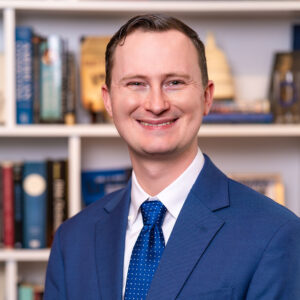
Alex Ward
Research Associate and Project Manager
Alex Ward serves as the research associate and project manager for the ERLC’s research initiatives. He manages long term research projects for the organization under the leadership of the director of research. Alex is currently pursuing a PhD in History at the University of Mississippi studying evangelical political activity in the 20th century. He holds degrees from Mississippi State University (BA), Vanderbilt University (MTS), and The Southern Baptist Theological Seminary (ThM). He and his wife Lindsey are church members in Tupelo, Mississippi. He and Lindsey have one daughter.
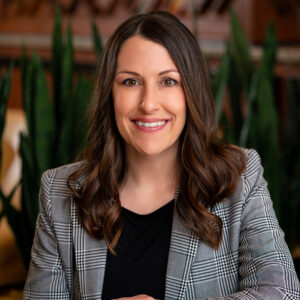
Carlotta White
Psalm 139 Project Placement Coordinator
Carlotta White serves as the ERLC’s Psalm 139 Project placement coordinator organizing ultrasound machine placements for pregnancy resource centers and coordinating dedication services. She has a Bachelor’s degree in Biblical Studies. She and her husband, Justin, have been married since 2018 and have one child.

Palmer Williams
General Counsel and Senior Policy Advisor
Palmer specializes in legal and policy analysis related to international human rights, sanctity of life, and government affairs. As a licensed attorney specializing in international law, she has extensive experience advocating for human rights on the international stage, including at the United Nations. She earned her Juris Doctor from Vanderbilt Law School and her B.A. in Political Science and Community Development from Vanderbilt University. Palmer and her husband Joseph live in Nashville, Tennessee with their three sons.
Senior Fellows
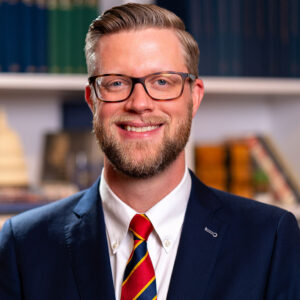
Jason Thacker
Senior Fellow and Director of the Research Institute
Jason Thacker serves as senior fellow focused on pro-life and other bioethical issues including abortion, reproductive technologies, medical care, euthanasia, and end-of-life decision making. He also leads the ERLC Research Institute. In addition to his work at the ERLC, he serves as assistant professor of philosophy and ethics at Boyce College and Southern Seminary in Louisville Kentucky. He is the author or editor of several books including the Essentials in Christian Ethics series, Baptist Social Ethics (forthcoming), The Age of AI, Following Jesus in a Digital Age, and The Digital Public Square. He is a graduate of The University of Tennessee and Southern Seminary, where he is currently a PhD candidate in Christian ethics and public theology.
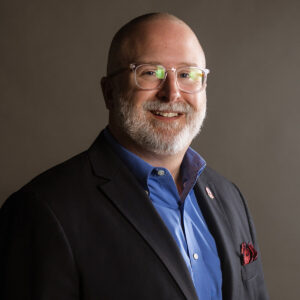
Nathan Finn
Senior Fellow
Nathan A. Finn serves as senior fellow focused on issues of religious liberty. He is an professor of faith and culture at North Greenville University, where he also serves as executive director of the Institute for Transformation Leadership. He is also bivocational teaching pastor at Taylors First Baptist Church. Finn earned the doctor of philosophy in theological studies with a concentration in church history from Southeastern Baptist Theological Seminary. He is the author or editor of over a dozen books including The Baptist Story: From English Sect to Global Movement (B&H Academic, 2015).
Finn is active in denominational leadership, where he serves as the current recording secretary of the Southern Baptist Convention. He also serves as a senior fellow of the Land Center for Cultural Engagement at Southwestern Baptist Theological Seminary and a fellow of the L. Russ Bush Center for Faith and Culture at Southeastern Baptist Theological Seminary. Finn and his wife have four children.
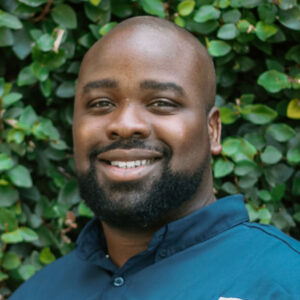
RaShan Frost
Senior Fellow
RaShan Frost serves as senior fellow focused on issues of human dignity. He is the lead pastor of The Bridge Church in North Charleston, South Carolina, and is also an adjunct professor of Christian Studies at Charleston Southern University.
Frost earned his doctor of philosophy in theology with a concentration in public theology at Southeastern Baptist Theological Seminary in Wake Forest, North Carolina. He is active in denominational leadership, serving with the Charleston Baptist Association and the Committee on Committees of the South Carolina Baptist Convention. Frost and his wife have two sons.